MercoPress. South Atlantic News Agency
Agriculture
-
Tuesday, November 29th 2022 - 10:00 UTC
US poultry farms forced to eliminate 50,5 million chickens because of avian flu
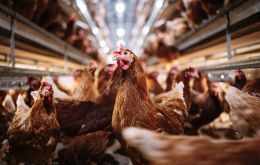
More than 50,5 million birds in US poultry farms have been slaughtered because of outbreaks of avian flu among flocks in over forty states, according to the Department of Agriculture.
-
Tuesday, November 29th 2022 - 09:59 UTC
Exports of Chilean fruit hindered by truckers' strike

A week-long general strike by Chilean lorry drivers is beginning to affect the country's foreign trade as goods fail to reach their ports of shipment. The fruit guild reported Monday that some 30 million kilos of exportable cherries had remained ashore due to the measure.
-
Monday, November 28th 2022 - 10:20 UTC
Russia determined to unblock fertilizer exports frozen in European ports
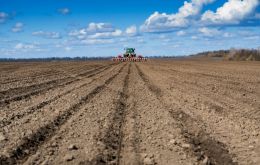
Russia is determined to unblock Russian fertilizers frozen in European ports, because of sanctions, and expects to resume ammonia exports through a pipeline across Ukraine. President Vladimir Putin made the announcement criticizing the current situation as totally unacceptable but admitted it is happening.
-
Thursday, November 24th 2022 - 13:12 UTC
Brazilian conglomerates dominate the Uruguayan meat industry export complex

The Brazilian conglomerate Minerva Foods is moving to complete a further overseas acquisition, this time a state of the art abattoir and meat packing plant in Uruguay which once the deal is completed will mean over 50% of the country's meat industry will be under control of Brazilian conglomerates.
-
Thursday, November 24th 2022 - 13:10 UTC
Brazilian agriculture record sales; China main client, soy and beef leading exports

Brazilian agribusiness exports reached a record of US$ 136.10 billion in the first ten months of 2022, which represents a 33.0% increase in value over the same period in 2021, according to the country's official foreign trade office. China remained as the leading destination for Brazilian commodities, purchasing US$ 45.28 billion, equivalent to 33.3% of total exports Brazilian agriculture.
-
Tuesday, November 22nd 2022 - 10:07 UTC
Argentina promoting medium and small companies exports to UK
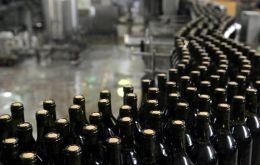
Sponsored by the Argentine Foreign and International trade ministry, a business delegation from Argentina visited the UK for a round of negotiations involving companies linked to the food and beverage industries.
-
Tuesday, November 22nd 2022 - 10:00 UTC
Brazil encouraged with UK larger quota for chicken meat and sugar

Brazil is forecasted to gain a 19.3% larger quota of chicken meat exports to the UK in accordance with the bilateral agreement signed last November 17 at the World Trade Organization (WTO), according to information from the financial press agency Valor.
-
Tuesday, November 22nd 2022 - 09:55 UTC
With Argentine wheat crop failing, Brazil appeals to Russian grain, but it has its problems

A severe drought, followed by several episodes of frost, is expected to reduce Argentine wheat harvest by 40% from initial estimates to around 11/12 million tons, which is expected to have an impact on the Mercosur partner Brazil.
-
Monday, November 21st 2022 - 10:19 UTC
Black Sea corridor for Ukraine grain exports renewed; Russia expects similar conditions for its fertilizers
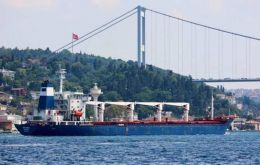
The UN and Turkey-sponsored deal aimed at easing global food shortages by facilitating Ukraine’s agricultural exports from its southern Black Sea ports was extended for 120 days last Friday, though Moscow complained that its own demands had not been fully addressed.
-
Monday, November 21st 2022 - 10:13 UTC
Brazilian 2022 exports of soybean estimated to reach 78 million tons, and corn some 40 million tons
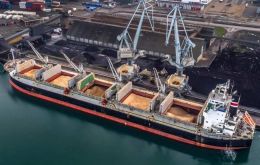
Brazil’s soybean exports are expected to reach 78 million tons this year, 9.3% down from 86.3 million tons in 2021, according to the grain exporters’ association Anec. But the figure is 2.5 million tons higher than the previous 75.5 million tons estimate for full-year soybean shipments.